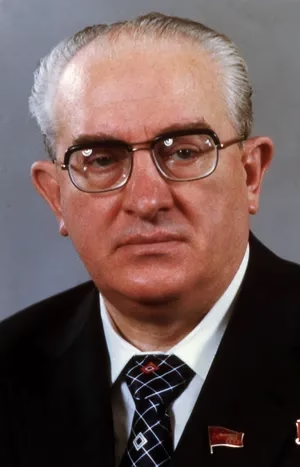Yury Andropov was a pivotal figure in Soviet politics, serving as the head of the KGB from 1967 to 1982 and later as the General Secretary of the Communist Party’s Central Committee from November 1982 until his death on February 9, 1984.
Born on June 15, 1914, in Nagutskoye, Russia, Andropov’s career spanned multiple roles, including Soviet ambassador to Hungary from 1954 to 1957. His tenure was marked by the suppression of the 1956 Hungarian Uprising, earning him the nickname “The Butcher of Budapest”.
As KGB chairman, Andropov played a significant role in crushing dissent within the Soviet Union. He oversaw the persecution of prominent dissidents, including Andrei Sakharov and Aleksandr Solzhenitsyn, and implemented measures to suppress the Solidarity movement in Poland.
Andropov’s leadership as General Secretary was marked by efforts to reform the Soviet economy and combat corruption. He introduced policies aimed at increasing workforce efficiency and reducing labor discipline issues. Despite these efforts, Andropov’s tenure was cut short by his death on February 9, 1984, at the age of 69.



